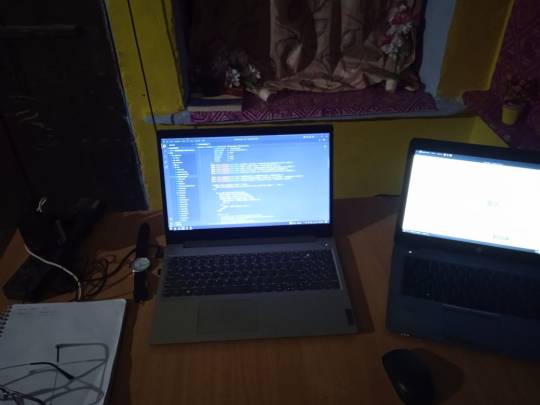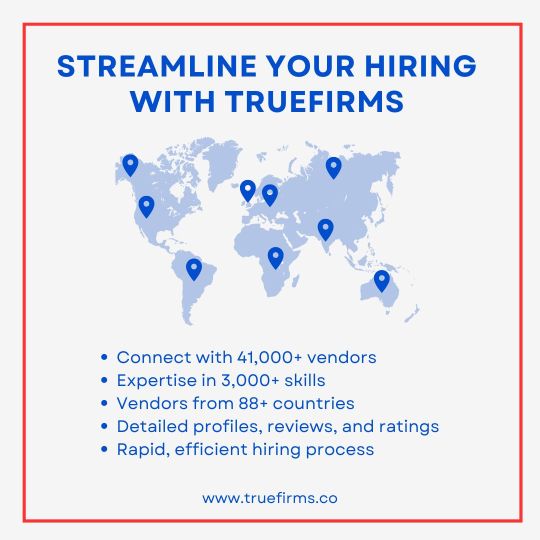#Talent Management Services
Explore tagged Tumblr posts
Text
People Solutions Services | Charter Global
Sourcing experts across technology consulting, application development and project management to support organizations in achieving their business goals.
#People Solutions Services#Human Resources Solutions#Employee Solutions Services#Best People Solutions#Affordable HR Solutions#Benefits of People Solutions#Talent Management Services#HR Consulting Services#Workforce Solutions#Employee Engagement Solutions
0 notes
Text
#talent management#managing talent#talent management solutions#talent management strategy#talent management software#talent management tools#talent management platform#talent management assessment#talent management assessment tools#managing top talent#why talent management is important#employee development#talent development#strategic workforce planning#employee dei#dei strategy#talent marketplace#talent management services
0 notes
Text
#Human resources consulting#HR consulting services#Talent management consulting#Performance management consulting
2 notes
·
View notes
Text
Oh man....the voice acting in this is another level of insane...
#monstrous agonies#the american accent took me off guard#but tma has made me get used to podcast narrators showing that insane level of range and talent#but the way they just....somehow manage to convey that VERY specific customer service voice....#the drama....#when will podcast VAs stop terrifying me with their ability to throw themselves into a role#but also switch from one role to another??#anyway i also have gotten the phrase 'the emotional depth of a stagnant puddle in high summer'#this host is both so elegant and so calming....#fandom spamdom#stuff i say
2 notes
·
View notes
Text
Achieving Success Through Supply Chain Management Training in Bangladesh
Bangladesh is a country of immense potential, but it has struggled to leverage that potential due to inadequate supply chain management training. As the world globalizes, supply chain management has become increasingly important for businesses in both developed and developing countries. For Bangladesh, this opens up opportunities to create jobs, increase exports and nurture economic growth.
But what does it take for Bangladesh to become a leader in the field of supply chain management? In this blog post, we will explore how training and education can help drive forward success in this area and help grow the economy of Bangladesh.

What is Supply Chain Management?
Supply chain management (SCM) is the process of planning, implementing, and controlling the operations of a company's supply chain. The main goal of SCM is to ensure that the company's products are delivered to customers in a timely and efficient manner.
SCM training can help Bangladesh-based companies improve their supply chains and achieve success. Through SCM training, companies can learn how to better plan and control their supply chains, which can lead to improved customer satisfaction and increased profits.

The Importance of Supply Chain Management Training
The Bangladesh Garment Manufacturers and Exporters Association (BGMEA) is committed to ensuring that its members are able to access the best possible supply chain management training. In order to achieve this, the BGMEA has partnered with a number of leading international organizations to offer a range of courses which cover all aspects of supply chain management.
The BGMEA recognizes that an efficient and effective supply chain is essential to the success of the garment industry in Bangladesh. In order to keep up with the ever-changing requirements of the global market, it is essential that Bangladeshi manufacturers have access to the latest information and techniques. The courses offered by the BGMEA will ensure that members are able to stay ahead of the competition and continue to meet the demands of buyers.
The courses on offer include:
- An Introduction to Supply Chain Management
- Principles of Supply Chain Management
- Fundamentals of Purchasing and Procurement
- Supply Chain Management for Apparel Brands and Retailers
- Sourcing Strategies for Apparel Manufacturers
- Lean Manufacturing for Apparel factories
- Quality Control and Assurance in Apparel Production
Each course is designed to provide participants with the knowledge and skills they need to improve their operations and contribute to the success of their company. The courses are delivered by experienced instructors who are experts in their field, and who use a variety of teaching methods including lectures, case studies, group work, and individual tutorials.
The Current State of Supply Chain Management in Bangladesh
The current state of supply chain management in Bangladesh can be best described as fledgling. Despite the fact that the country has been making strides in recent years to improve its logistics infrastructure, the overall level of development is still relatively low. This is particularly true when compared to other countries in the region such as India and China.
However, it is important to note that there are some bright spots. In particular, the Bangladeshi government has been investing heavily in training programs for supply chain management. These programs are designed to help improve the skills of those working in the logistics industry and to raise awareness about best practices.
There is still a long way to go before Bangladesh can claim to have a world-class supply chain management system. However, with continued investment and commitment from both the public and private sectors, it is certainly possible that the country will be able to make significant progress in this area in the years to come.
The Benefits of Supply Chain Management Training in Bangladesh
The benefits of supply chain management training in Bangladesh are numerous. Perhaps most importantly, it helps to improve communication and coordination between different parts of the supply chain, which can lead to improved efficiencies and cost savings. In addition, supply chain management training can help to improve supplier relationships, as well as customer service and satisfaction levels.
In today's business environment, having a well-trained and efficient supply chain management team is critical to success. By investing in quality training for your team, you can ensure that your company is able to keep up with the competition and maintain a high level of customer satisfaction.

The Different Types of Supply Chain Management Training in Bangladesh
Supply chain management (SCM) is becoming increasingly important in today's globalized world, particularly for firms in the developing world. Bangladesh is no exception; training in SCM is necessary to keep up with the challenges of an ever-changing business landscape. This article will discuss the different types of SCM training available in Bangladesh, and how each of these courses can help organizations improve their performance.
1. Traditional supply chain management training: This type of training covers the basic concepts and methods of supply chain management. It is typically delivered in a classroom setting, and may include lectures, case studies, and group discussions.
2. Online supply chain management training: This type of training is delivered online, and can be self-paced or synchronous (taught in real-time with a live instructor). It may include videos, readings, quizzes, and simulations.
3. Supply chain management certification programs: These programs provide comprehensive training in supply chain management principles and practices. They often include an exam at the end, and successful completion can lead to professional certification.
4. On-the-job training: Many organizations offer on-the-job training programs for their employees. This type of training can be tailored to the specific needs of the organization, and allows employees to learn while they are working.

The Challenges of Implementing Supply Chain Management Training in Bangladesh
In Bangladesh, the challenges of implementing supply chain management training are many and varied. The first challenge is the lack of awareness of the importance of supply chain management among the general population. This is compounded by the fact that there is no formal education or training available in Bangladesh on this topic. As a result, there are few people who are knowledgeable about supply chain management and its potential benefits.
The second challenge is the lack of infrastructure and resources to support supply chain management training. In Bangladesh, most businesses operate on a small scale and do not have the necessary resources to invest in training their employees on supply chain management. Additionally, there is a lack of qualified trainers who are able to provide quality training on this topic.
The third challenge is the cultural barriers to implementing supply chain management training in Bangladesh. The culture in Bangladesh places a high value on personal relationships and networking. This can make it difficult to implement changes within an organization, such as introducing new processes or technologies related to supply chain management. Additionally, the hierarchical nature of Bangladeshi society can make it difficult to get buy-in from all levels of an organization for new initiatives.
Despite these challenges, there are also opportunities for successful implementation of supply chain management training in Bangladesh. One opportunity lies in the increasing globalization of business and trade. As more businesses operate internationally, they will need employees who are trained in international standards and practices related to supply chain management. Additionally, the growth of the Bangladesh economy provides opportunities
Tips for Successful Supply Chain Management Training
Having an effective supply chain management training program can be a great resource for any organization. It is essential to ensure that proper training is conducted in order to maximize efficiency and productivity. With the right guidance and resources, companies can build a successful supply chain management program that benefits the entire organization. Below we will discuss some tips for successful supply chain management training that can help you get started on the right track.
1. Define your goals: What do you hope to achieve through supply chain management training? Is it to improve your knowledge of the subject so that you can be more effective in your current role? Or are you looking to advance your career and move into a managerial position? Once you know what your goals are, you can tailor your training accordingly.
2. Do your research: There are many different types of supply chain management training programs out there. Before enrolling in one, do some research to make sure it's a good fit for you. Ask yourself what the program covers, how long it is, and whether it's offered online or in-person.
3. Consider your schedule: Supply chain management training can be intensive, so make sure you have the time to commit to it. If you're working full-time while taking classes, consider an online program that offers more flexibility.
4. Set aside time for study: In addition to attending classes, you'll need to set aside time for independent study. Make sure you're prepared to commit the necessary time to reading textbooks and other course materials, as well as completing assignments.
5. Stay organized: Supply chain management involves a lot of moving parts, so it's important to stay organized throughout your training. Keep track of deadlines and due dates, and create a system for organizing course materials so that you can easily find what you need when you need it.

How to Overcome the Challenges of Supply Chain Management Training in Bangladesh
In order to overcome the challenges of supply chain management training in Bangladesh, it is important to first understand the specific challenges that exist within the country. One of the biggest challenges is the lack of a centralized government body or institution that can provide cohesive and standardized training. This often results in a fragmented approach to training, with different organizations and companies using their own methods, which can make it difficult for employees to receive a consistent education.
Another challenge is the limited resources that are available for training. This includes both financial resources and skilled personnel. As a result, many supply chain management programs in Bangladesh are forced to operate on a shoestring budget, which can impact the quality of instruction and learning materials. In addition, there is often a shortage of qualified trainers, which can make it difficult to find someone with the necessary knowledge and experience to effectively teach employees.
Despite these challenges, there are also several opportunities that exist for those interested in pursuing supply chain management training in Bangladesh. One of the biggest advantages is the country's vast pool of potential workers. With over 160 million people living in Bangladesh, there is a large labor force that can be tapped into for supply chain management positions. In addition, Bangladesh has a rapidly growing economy and its manufacturing sector is expected to expand significantly in the coming years. This provides an opportunity for those with supply chain management training to find employment with companies that are looking to capitalize on this growth.
Overall, while there are some challenges associated with supply chain
Conclusion
In conclusion, supply chain management training in Bangladesh can help businesses achieve success. With proper training and resources, businesses can become more efficient and effective in their operations thus gaining a competitive edge over other companies. It is essential for organizations to invest in the right technology and personnel to ensure that they are well-prepared for the ever-evolving business environment. Ultimately, it is up to each business's leadership team to recognize the importance of having strong supply chain management processes and provide necessary support towards successful supply chain implementations.
#Enroute International Limited#Managed Service#People Outsourcing#Payroll Service#Facility Management#Events Activation#Recruitment Service#Talent Sourcing#Headhunting Solution#HR Consulting#Skills Recruitment#Pre-employment verification#Background Verification#Executive Education#Leadership Executive Coaching#Customized Program#Consultancy Service#Market Development Service#Digital Lab#Character Licensing#Capacity Development#BPO Company#Business Process Outsourcing Company#Business Process Outsourcing Organization#Business Process Outsourcing Bangladesh#E-learning#Open Training#Skills Training#Executive Coaching#Customized Training
5 notes
·
View notes
Text
KMJJ Enterprise, LLC

At KMJJ Enterprise, we specialize in providing top-tier talent management and talent acquisition solutions tailored to businesses' unique needs across various industries. We deliver staffing solutions that align with your company’s goals and culture. Whether you’re looking to build a robust talent pipeline or fill critical positions with exceptional candidates, our team is dedicated to finding the right people to drive your business forward.
Visit Our Website
0 notes
Text
Vendor Management Solutions: Streamlining Contingent Workforce Management

The Role of VMS in Contingent Workforce Management
A Vendor Management System (VMS) is a software platform that helps companies manage their contingent workforce and the vendors who supply them. It centralizes the process of acquiring, onboarding, and managing external labor, providing visibility and control over the entire vms contingent workforce lifecycle. This automation allows organizations to reduce inefficiencies, improve compliance, and manage costs more effectively.
One of the most significant benefits of a VMS is its ability to simplify the complexities of working with multiple staffing vendors. Companies that rely on contingent workers often partner with various vendors, each with different processes and standards. Managing these relationships manually can be time-consuming and prone to errors. With a VMS, organizations can automate vendor management processes, ensuring consistency in how vendors are engaged, monitored, and measured.
Direct Sourcing: A Complementary Approach
While vendor management solutions play a crucial role in managing contingent labor, direct sourcing is becoming an increasingly popular strategy for companies. Direct sourcing refers to the practice of identifying and engaging contingent workers directly, without the need for third-party staffing agencies. By building their talent pools, companies can reduce their dependency on external vendors and lower costs associated with recruitment.
Direct sourcing contingent labor also allows businesses to cultivate a more engaged and loyal contingent workforce. Organizations can build relationships with pre-vetted candidates, ensuring a faster and more efficient hiring process. In some cases, these workers can transition into permanent roles, making direct sourcing a valuable strategy for talent acquisition.
By integrating direct sourcing strategies into a VMS platform, companies can benefit from the best of both worlds: the efficiency and automation provided by the VMS, combined with the cost savings and speed of direct sourcing. Many modern VMS platforms offer features that support direct sourcing, including talent pool management, candidate engagement tools, and onboarding automation.
The Benefits of VMS in Contingent Workforce Optimization
Beyond simplifying vendor relationships and enabling direct sourcing, vendor management solutions offer several other key benefits:
Cost Control: VMS platforms provide visibility into spend and usage across all contingent workers and vendors. This transparency enables better budgeting and cost forecasting, allowing companies to reduce unnecessary spending.
Compliance and Risk Management: With contingent labor comes a host of regulatory and compliance risks, including worker classification and labor law adherence. A VMS helps ensure that these requirements are met consistently across all workers and locations, minimizing the risk of costly compliance violations.
Efficiency and Scalability: As companies grow and their reliance on contingent labor increases, managing these workers can become more complex. A VMS scales with the organization, enabling seamless expansion without losing control over the contingent workforce.
Conclusion
In today’s fast-paced and competitive business environment, vendor management solutions are indispensable for organizations that rely on contingent labor. By centralizing and automating the management of vendors and contingent workers, companies can reduce costs, improve compliance, and streamline operations. When paired with direct sourcing strategies, the benefits are even greater, enabling organizations to tap into top talent quickly and efficiently. For any business looking to optimize its workforce management, investing in a VMS is a step toward a more agile and competitive future.
You can follow these resources also:
[REVEALED]: 7 Questions You Must Ask In 2024 Before Investing in a VMS
Top 6 Reasons Why You Should Absolutely Invest in a VMS
What is the Importance of Credentialing in Healthcare?
#talentacquisition#vendor management solutions#vendormanagement#contingentworkforce#vendors#procurement#vendor management tools#directsourcing#vendor management software#vms#hr software#technology#businessstrategy#Total talent management#b2b services#supplychainsolutions#supplychainmanagement#vendor invoice management#job interview#direct sourcing platform#online business directory
0 notes
Text
"The Role of Career Progression and Mentorship in Long-Term Talent Retention
In the evolving landscape of talent management, employee retention remains one of the most pressing concerns for organizations. While competitive salaries and benefits play a role in retaining talent, long-term retention often hinges on an organization’s ability to provide career progression and mentorship. These elements contribute significantly to an employee's sense of purpose, job satisfaction, and long-term commitment to the company. By exploring these two key factors in greater detail, we can understand how they shape the workforce and help reduce turnover.
1. Career Progression: A Strategic Approach to Retention
Career progression encompasses the opportunities and pathways available for employees to grow professionally within an organization. Employees today seek not just a job but a career that offers growth, skill enhancement, and the potential to move into leadership roles. Therefore, offering clear career progression paths can transform an employee’s outlook on their job and their future within the company.
Key Elements of Effective Career Progression:
Transparent Growth Opportunities: Providing employees with a well-defined career framework that outlines possible roles, skills required, and the steps needed for advancement is crucial. This transparency allows employees to set career goals and work towards them, knowing that their efforts will be recognized and rewarded.
Ongoing Training and Development: Career progression isn’t just about moving up the ladder; it’s about becoming better at what one does. Companies that invest in regular training programs, workshops, and certifications enable their employees to expand their skill sets and stay relevant in their fields. This investment signals to employees that the company values their development, increasing job satisfaction.
Internal Mobility: Employees are more likely to stay with a company that encourages internal mobility. Providing opportunities for lateral movements to different departments or functions allows employees to explore diverse roles, acquire new skills, and broaden their experiences within the organization. This variety in experience can reinvigorate their interest in their work and decrease the likelihood of them seeking new opportunities elsewhere.
Recognition and Reward: Structured career progression paths often come with milestones, such as promotions, title changes, or salary increases. Recognizing and rewarding employees for their accomplishments validates their hard work and fosters a culture where effort and achievement are celebrated.
The Impact of Career Progression on Retention: Employees who perceive that their organization is invested in their career development are more likely to be engaged and committed. When they see a clear and attainable future within the company, they feel motivated to perform better. This sense of purpose not only boosts morale but also builds loyalty, as employees recognize the organization's role in their professional journey.
2. Mentorship: Guiding and Nurturing Talent
Mentorship is another cornerstone of employee retention, serving as a bridge between career aspirations and the skills needed to achieve them. In a mentorship relationship, experienced professionals provide guidance, feedback, and support to less experienced employees, helping them navigate the complexities of their roles and the organization.
Core Aspects of Effective Mentorship:
Personalized Career Guidance: Mentors work closely with mentees to identify their strengths, weaknesses, and career aspirations. This personalized support helps employees map out their career paths and develop the skills necessary for growth.
Supportive Learning Environment: Mentorship creates a safe space for employees to ask questions, learn from mistakes, and seek advice without fear of judgment. This environment fosters a culture of continuous learning and self-improvement, which are critical for long-term career growth.
Enhanced Visibility and Networking: Mentors often facilitate introductions and create networking opportunities for their mentees, expanding their professional connections within the company. This visibility can lead to new opportunities and help mentees understand the different functions and dynamics within the organization.
Emotional Support and Encouragement: Career progression can be daunting, and employees often face challenges that can affect their motivation. Mentors provide emotional support, offer encouragement during tough times, and celebrate successes, helping mentees stay focused on their long-term goals.
How Mentorship Drives Retention: Employees who have access to mentorship feel more supported and valued. This nurturing environment builds trust in the organization and creates a sense of belonging. When employees know they have someone invested in their success, they are more likely to remain with the company. Furthermore, mentorship accelerates skill development and helps employees prepare for future roles, making them feel more confident in their career progression within the organization.
3. The Synergy Between Career Progression and Mentorship
Career progression and mentorship are most effective when they work in tandem. While career progression provides a roadmap for growth, mentorship acts as the guide, helping employees navigate this journey. This synergy ensures that employees are not only aware of the opportunities available to them but also equipped with the skills and support needed to seize these opportunities.
Implementing a Combined Approach:
Align Career Pathways with Mentorship: Organizations can align mentorship programs with career progression frameworks. For instance, as employees move through different stages of their career paths, mentors can provide targeted support and guidance to help them develop the specific skills needed for their next step.
Regular Career Conversations: Mentors and mentees should engage in regular career conversations to reassess goals, discuss challenges, and identify new development opportunities. These discussions keep employees focused and motivated, ensuring that their career progression aligns with the organization's goals.
Mentorship Training for Leaders: Effective mentors play a crucial role in employee retention. Providing leadership training to potential mentors helps them understand how to support and guide employees effectively, fostering a culture of learning and growth.
Conclusion
Career progression and mentorship are integral to a successful talent retention strategy. They address the key concerns of modern employees: the desire for growth, learning, and support. By offering clear pathways for career advancement and providing mentorship to guide employees through their journey, organizations create a work environment that promotes loyalty, engagement, and personal development.
In an age where job hopping has become common, building a culture that values employee growth and provides structured support is a competitive advantage. Employees are more likely to remain committed to an organization that invests in their future, reducing turnover rates and building a skilled, motivated workforce dedicated to the company's long-term success. Therefore, businesses that prioritize career progression and mentorship not only retain top talent but also cultivate a thriving organizational culture that drives sustained performance.
0 notes
Text
https://thekeyguide.com/what-is-effective-time-management-skills/
Welcome to our quick guide on mastering time management skills! Managing your time effectively isn’t just about working harder but working smarter. This guide will help you organize your daily tasks in a way that enhances productivity and minimizes stress. You’ll learn how to prioritize the most crucial activities, set achievable goals, and use your working hours more efficiently. Get ready to transform your day and tackle your tasks with confidence!
#effective#in stars and time#poll time#adventure time#management#business#software#services#strategies#skills#learning#talent#teaching
1 note
·
View note
Text
#HR partner#Human resources outsourcing#HR services for small businesses#Finding an HR consultant#HR management solutions#Employee compliance#Recruitment strategies#Talent management#Employment laws and regulations#Workplace culture improvement#Employee relations management#HR technology tools#HR scalability for business growth#Hiring and onboarding solutions#Bambee HR services#Affordable HR solutions#Dedicated HR manager#Small business HR compliance#HR software integration#HR best practices for business#HR outsourcing
0 notes
Text

Technology talent sourcing
In a world where diversity and inclusion are more important than ever, it is crucial for companies to prioritize workplace equality. As we look ahead to 2024, supporting women in the workforce is not only a moral imperative but also a strategic business decision. In this blog post, we will explore what companies need to know about creating an environment that empowers and champions women in the workplace. From closing the gender pay gap to fostering inclusive leadership opportunities, let’s dive into how organizations can truly support and uplift all employees for success in the years to come.
#IT staffing Tech recruitment#IT job placement#Technology staffing agency#IT talent acquisition#Tech staffing solutions#IT staffing services#IT job agency#Technology talent sourcing#IT staffing firm#Tech workforce solutions#IT staffing consultancy#Technology recruitment agency#IT staffing specialists#Tech employment agency#Contract hiring#Permanent Hiring#Fulltime Hiring#Contract to Hire#Corp to Corp#C2H#Bigdata Hiring#Cloud Serviecs Hiring#Google GCP Hiring#Web Services hiring#Technology Hiring#IAM hiring#Identity access management#AWS Hiring#Java Backened#Java UI
0 notes
Text
Manpower Solutions in the Middle East: Partner for Expert Manpower Middle East Services

For top-notch manpower in the Middle East, contact Alliance Recruitment Agency. We provide both on-board and remote staffing solutions for various industries worldwide. Our expertise ensures you get the right talent tailored to your specific needs. Let us help you build an exceptional team.
#Manpower Middle East#Middle East Staffing Solutions#Recruitment Middle East#On-Board Staffing Middle East#Remote Staffing Solutions#Middle East Talent Acquisition#Global Recruitment Services#Industry-Specific Staffing#Middle East Workforce Solutions#Talent Management Middle East
0 notes
Text
Comprehensive Facility Management Services in Saudi Arabia | H.R. Talent House

Introduction to Facility Management
Facility management is an essential part of modern business operations. It ensures that workplaces and environments are well-maintained and efficient. In Saudi Arabia, Asset Management has grown significantly as organizations seek to optimize operations, ensure safety, and enhance overall productivity.
H.R. Talent House specializes in delivering tailored Asset Management services. These services cover various industries, including commercial buildings, healthcare, education, and industrial sectors. Our approach focuses on creating sustainable, cost-effective, and safe environments for all businesses.
What is Facility Management?
Facility management involves coordinating and overseeing various services required for the proper functioning of a building or facility. These services typically include maintenance, security, cleaning, waste management, and energy management. However, the role extends beyond basic services. It plays a crucial part in ensuring that the facilities operate smoothly, comply with regulations, and meet the needs of the people using them.
In Saudi Arabia, the demand for Asset Management has grown as industries expand and businesses look for ways to improve efficiency. Therefore, companies are turning to professional facility management firms like H.R. Talent House to handle the complexities of modern buildings.
The Role of Facility Management in Saudi Arabia's Growth
Saudi Arabia is experiencing rapid growth in infrastructure development. The construction boom has led to a high demand for comprehensive facility management services. Moreover, with government initiatives such as Saudi Vision 2030, the need for sustainable and effective Property Management is greater than ever.
Asset Management contributes to this growth by ensuring that buildings and operations are maintained at peak performance. For instance, energy efficiency is a top priority. Through Asset Management, companies can reduce energy consumption and improve sustainability. This not only helps the environment but also lowers costs, a win-win situation for businesses.
Key Facility Management Services
H.R. Talent House provides a wide range of facility management services tailored to the unique needs of clients. These services include:
1. Maintenance Services
Proper maintenance ensures that facilities operate without interruptions. This includes regular inspections, repairs, and preventive maintenance. By focusing on proactive solutions, H.R. Talent House minimizes the risk of breakdowns and costly repairs.
2. Security Management
Security is a top concern for many businesses. Facility management includes installing and monitoring security systems such as CCTV cameras, access control, and alarm systems. These measures protect the property, employees, and visitors.
3. Cleaning and Waste Management
A clean environment is crucial for both health and productivity. Facility management teams ensure that buildings are kept clean and sanitary. Additionally, waste management is handled efficiently to comply with regulations and promote sustainability.
4. Energy Management
Energy efficiency is becoming increasingly important in facility management. H.R. Talent House helps businesses reduce energy usage through smart energy management systems. This includes optimizing HVAC systems, lighting, and more to reduce energy consumption and cut costs.
5. Space Management
Effective use of space can improve productivity and employee satisfaction. Facility management helps in planning and organizing office layouts, ensuring that space is used efficiently. This is particularly important in large facilities where space management can make a significant difference.
Importance of Sustainability in Facility Management
Sustainability is now at the forefront of facility management. Businesses are increasingly looking for ways to reduce their environmental impact. Therefore, H.R. Talent House integrates sustainable practices into all aspects of Property Management.
For example, energy-efficient lighting, water-saving fixtures, and eco-friendly cleaning products are now standard in modern facilities. These practices not only reduce environmental impact but also save businesses money in the long run.
Moreover, sustainable facility management enhances a company’s reputation. Businesses that prioritize sustainability are viewed more favorably by customers, partners, and even potential employees.
The Impact of Technology on Facility Management
Technology is transforming the facility management industry. Today, facility managers use sophisticated software to monitor and manage various systems. Smart building technologies allow for real-time monitoring of energy usage, security systems, and even space utilization.
H.R. Talent House utilizes cutting-edge technology to provide efficient and effective Property Management solutions. For example, we use Internet of Things (IoT) devices to monitor critical systems such as HVAC and lighting. These devices allow us to detect and address issues before they become significant problems, ensuring that facilities operate smoothly and efficiently.
Moreover, technology makes Site Management more transparent. Clients can now access real-time data and reports on their facilities, enabling them to make informed decisions about their operations.
Benefits of Outsourcing Facility Management
Outsourcing facility management offers several benefits for businesses. First, it allows companies to focus on their core operations while experts handle the management of their facilities. This leads to increased efficiency and productivity.
Second, outsourcing Property Management to a specialized firm like H.R. Talent House ensures that facilities are managed according to the latest industry standards and regulations. We stay up-to-date with changes in regulations and technology, ensuring that your facility is always compliant.
Third, outsourcing can save businesses money. Facility management firms can leverage their expertise to identify cost-saving opportunities that in-house teams might miss. For example, energy audits can reveal inefficiencies that, when corrected, lead to significant savings.
The Future of Facility Management in Saudi Arabia
The facility management industry in Saudi Arabia is expected to continue growing. As more businesses recognize the value of professional Property Management services, the demand for these services will rise.
Moreover, the focus on sustainability and smart technologies will drive innovation in the industry. Companies that adopt these practices early will be well-positioned to take advantage of the benefits they offer.
H.R. Talent House is committed to leading the way in Site Management in Saudi Arabia. Our focus on sustainability, technology, and tailored solutions ensures that our clients receive the highest level of service. Whether you need basic maintenance services or comprehensive Property Management solutions, we are here to help.
Conclusion
Facility management is crucial for the smooth operation of any business. It ensures that facilities are safe, efficient, and well-maintained. In Saudi Arabia, the demand for these services is growing as businesses look for ways to optimize their operations and reduce costs.
H.R. Talent House provides expert Site Management services that meet the unique needs of our clients. From maintenance and security to energy management and sustainability, we offer comprehensive solutions that help businesses thrive.
If you are looking for professional Property Management services in Saudi Arabia, contact H.R. Talent House today. We are committed to helping you create safe, efficient, and sustainable environments for your business.
Read More.....
Author Bio: Simi Gajala has been working in digital marketing since 2018, amassing 6 years of experience. Currently Working as a Digital Marketing Executive at HR Talent House. Simi specializes in SEO, SMO, Google Ads, Meta Ads, and blogs & content writing, Boosting Brands, Increasing Visibility, And Enhancing Online Performance.
0 notes
Text
Human Resources Management Solutions
We at BRAANDIX understand that the effective running of human resource management is the core of business success and continuity. Our HR Implementation Services have been structured to provide state-of-the-art solutions that will streamline HR processes, enhance employee experiences, and align workforce strategies with your company’s corporate objectives.
#HR services in Kerala#HR implementation company#Human resource solutions#Recruitment services#Payroll processing#Talent management#HR compliance#Workforce optimization#HR consulting#Employee benefits management.
0 notes
Text
Streamline Your Hiring with TrueFirms | Staff Augmentation Marketplace

Say goodbye to lengthy hiring processes! TrueFirms connects you with over 41,000 vendors in 88+ countries, offering expertise in 3,000+ in-demand skills. Find detailed vendor profiles, client reviews, and ratings to make informed hiring decisions. Whether you need IT experts, digital marketers, or creative professionals, TrueFirms ensures a swift and efficient hiring process. Discover the perfect talent for your project needs today with TrueFirms.
#truefirms#hire developers#hire developers on contract#contract hire#staff augmentation#Business Solutions#Hiring Strategies#Team Building#Project Management#Talent Acquisition#hire developer on contract in india#staff augmentation firms#staff augmentation services#staff augmentation company#staff augmentation companies
1 note
·
View note
Text
Welcome to Dione Bennet: Best human resource Company in Gurgaon
Welcome to Dione Bennet: the pinnacle of human resource excellence in Gurgaon. As a premier HR company, Dione Bennet is committed to delivering top-tier human resources services tailored to meet the diverse needs of businesses across various industries. Whether you're a burgeoning startup or a well-established corporation, our expert team is here to ensure your HR functions are not just managed but optimized for strategic success.
#best human resource management#human resources services#best hr consultancy services#strategic human resource management#talent acquisition#HR Services#HR Company
1 note
·
View note